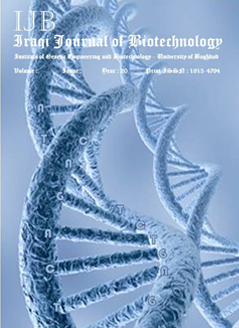Evaluation of Micronuclei and Other Nuclear Anomalies in Buccal Cells of some Iraqi Women with Breast Cancer
Abstract
The present study was designed to evaluate the frequencies of micronuclei and other nuclear anomalies in buccal mucosa cells of Iraqi women with breast cancer. This case –control study included 20 primary diagnosis breast cancer patients. They were recruited at The Oncology Teaching Hospital, Baghdad, Iraq. From January to February 2016. As control 20 apparently healthy women were enrolled in the present study. Each participant was interviewed personally about her date of birth, marital status, habits and health state, occupation using a comprehensive questionnaire. Buccal smears were taken from all participants after asking them to rinse their mouths with tap water. The analysis of micronucleated cell and nuclear anomalies were done under a total magnification of X1000, 2000 cells per subjects ( patient and control group) were scored and the results are represented as the number of micronucleated ,binucleated and karyolysis cell per 2000 cells. The scoring of the level of the micronuclei in exfoliated cells of oral mucosa showed a significant increase (P = 0.0001) in the breast cancer patients in relation to control. The mean score of micronuclei for the breast cancer patients was (19.20 ± 1.36 ) it was twofold higher than that of healthy women (control group).The frequency of binucleated cells was higher in breast cancer patients than in control, the difference was statistically significant (P > 0.05). The number of Karyolytic cells was also elevated in breast cancer patients, but this increase did not attain a significance. Increased frequency of binucleated and micronucleated cells in the buccal mucosa of breast cancer patients shows the genomic instability may be correlated with breast cancer. The results suggest that The Buccal Micronucleus Cytome (BMCyt) assay serves as a sensitive tool for studying genomic instability in primary cancer patients.


